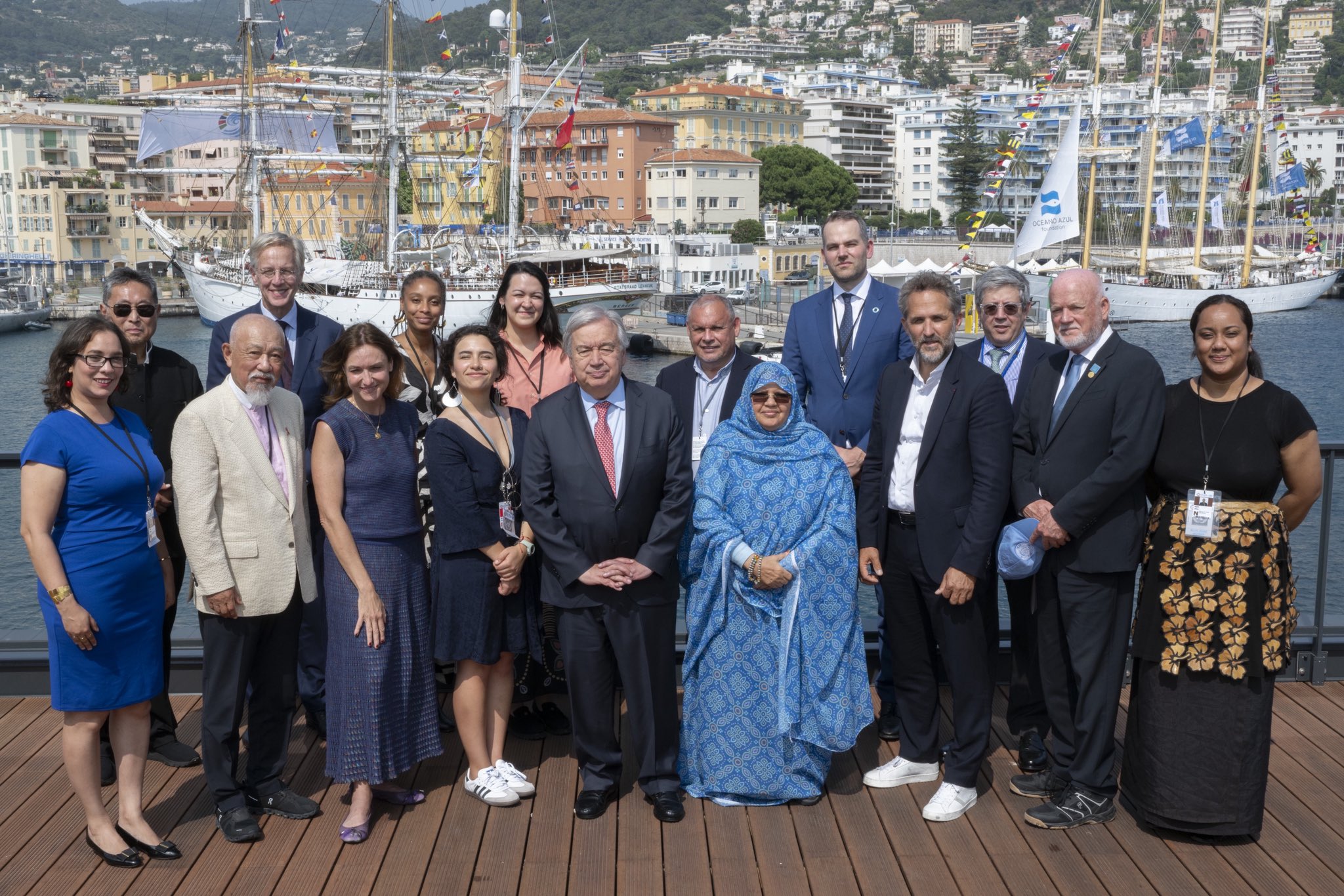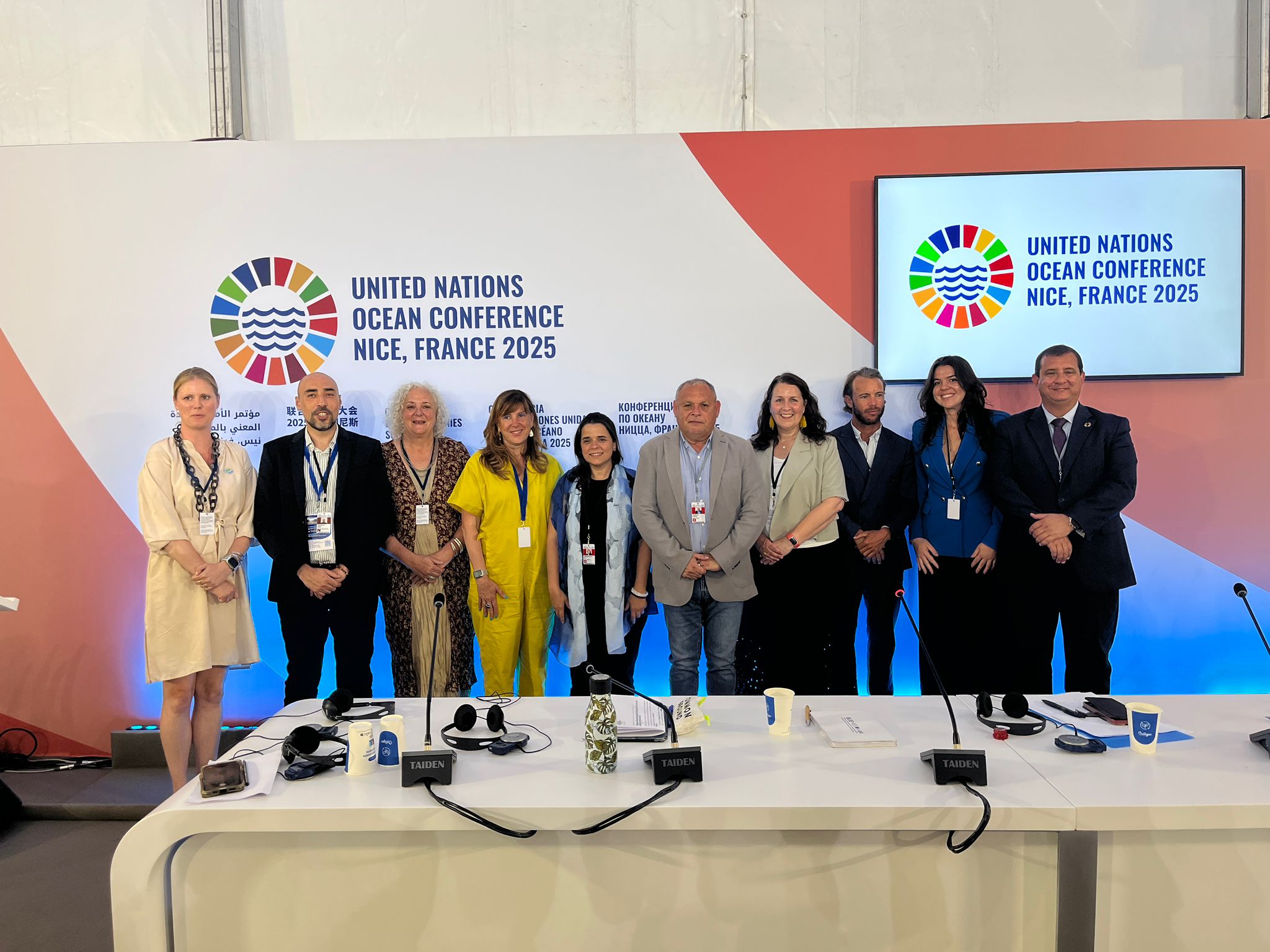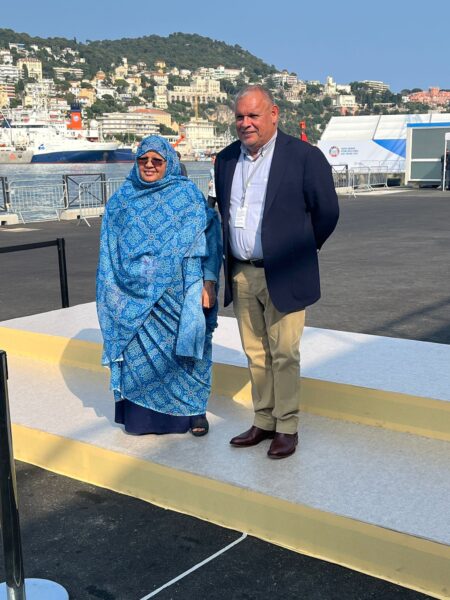UNOC3, a Turning Point for Ocean Governance: Local and Regional Governments take the floor
16.06.2025

From 9 to 13 June 2025, the Third UN Ocean Conference (UNOC3) convened in Nice over 50 Heads of State and Government, along with UN Secretary-General António Guterres, in a pivotal moment for advancing global ocean action. The stakes could not be higher: ocean acidification, biodiversity loss, rising sea levels and growing pollution are now placing entire ecosystems — and with them, the livelihoods of billions — at risk.
At UNOC3, local and regional governments reminded the world that ocean action begins — and must be sustained — in territories.
Local and regional governments played a visible and strategic role throughout the UN Ocean Conference in Nice. From the official side event co-organized by UCLG, ICLEI, OECD, FMDV and Regions4, to the launch of the “Ocean Rise & Coastal Resilience” Coalition, their voices were loud and clear. In a special dialogue with UN Secretary-General António Guterres, LRGs called for a global financing mechanism to support local ocean action — reminding all that from resilience to restoration, the ocean can only be protected if solutions are rooted in territories.

Ocean Rise and Coastal Resilience Summit – Nice, 7 June 2025
Held on the eve of the official opening of UNOC3, the Ocean Rise & Coastal Resilience Summit — co-organized by the City of Nice and the Ocean & Climate Platform — marked a key milestone in the global mobilization of coastal territories facing the growing impacts of climate change. This high-level gathering saw the official launch of the Coalition of Coastal Cities and Regions, an initiative aiming to unite over 200 local and regional governments worldwide around concrete solutions to anticipate sea level rise, strengthen coastal ecosystem resilience, and promote a unified political voice in international fora.
The summit brought together mayors, governors, representatives of island states, as well as institutional and scientific partners. UCLG, as a strategic partner in the process, was closely involved in the preparation and actively represented during the event by two key elected officials: Leonardo Orlando, Prefect of Manabí (Ecuador), contributed to the workshop on territorial governance, while Fatimetou Abdel Malick, President of the Nouakchott Region (Mauritania), delivered a strong message on the need for local financing mechanisms to support coastal adaptation.
The Coalition will eventually be hosted by the Global Center for Climate Mobility (GCCM), which will lead its technical coordination, in partnership with the local, scientific and financial actors engaged in this effort.

UCLG, Partner of the new call for projects by the French Ministry For Europe and Foreign affairs on coastal adaptation and Decentralized cooperation
In addition to its ongoing advocacy on the international stage — particularly around SDG 14 and the role of local governments in sustainable ocean governance — UCLG is also committed to advancing concrete and operational solutions. In this spirit, we continue to work with partners to strengthen decentralized cooperation and partnerships between local and regional governments as direct levers for coastal resilience.
A key moment on 7 June in Nice was the announcement by Frédéric Cholé, Delegate for Local Governments and Civil Society at the French Ministry for Europe and Foreign Affairs, of a new call for projects (AAP) dedicated to sustainable coastal adaptation. Backed by a €1 million envelope over three years, the initiative aims to support decentralized cooperation projects led by local and regional governments themselves, in response to the challenges of climate change, coastal erosion, and marine ecosystem preservation.
UCLG is proud to be a partner in this initiative, which embodies the vital alliance between global political engagement and strong territorial anchoring.
Direct Dialogue with the UN Secretary-General : Making local voices heard at the highest level
On 9 June, during a dedicated working session with UN Secretary-General António Guterres, UCLG brought the voice of local and regional governments firmly to the forefront of the global ocean agenda. This rare and symbolic moment of exchange between the highest level of the United Nations and local representatives marked a turning point. The Secretary-General himself stated he was “encouraged by the commitments, solutions and investments” showcased throughout the Conference.
Two elected representatives from UCLG delivered strong messages on behalf of the constituency:
Rodrigo Mundaca (Governor of Valparaíso, Chile) emphasized the strategic role of coastal governments in protecting marine ecosystems, and advocated for fairer, more inclusive ocean governance frameworks. Fatimetou Abdel Malick (President of the Nouakchott Region, Mauritania) highlighted the critical importance of ensuring direct access to local finance to strengthen the resilience of territories facing climate impacts.This high-level dialogue sent a clear and visible signal: local and regional governments are not only claiming their place in global ocean governance — they are earning it. A powerful political message ahead of the next milestones for SDG 14.
A Territorial Perspective on Ocean Governance: Key Takeaways from UCLG’s SDG 14 ReviewAs the UN Ocean Conference entered its final stretch, the side event “Localizing SDG 14: Strengthening Multi-Level Governance for Sustainable Ocean Action” showcased the concrete contributions of local and regional governments from four continents to ocean resilience and coastal protection.
Co-organized by UCLG, ICLEI, OECD, FMDV and Regions4, the event revolved around three key pillars: multilevel governance, sustainable financing, and the connection between science, policy, and community knowledge.
The session opened with insights from UCLG’s SDG 14 review, based on input from nearly 200 local governments and associations. The report — to be launched at the HLPF in July — identifies four core challenges: fragmented governance, inadequate financing, weak science-policy interfaces, and the need for integrated “nexus” approaches linking water, food, climate, and biodiversity.
The panel brought together a rich diversity of territorial experiences from Latin America, Europe and beyond. Rodrigo Mundaca, Governor of Valparaíso (Chile), recalled that port expansion must be carried out “with and for communities,” not at their expense — a vision echoed in his region’s firm stance on maritime concessions and renewable energy transition.
From Brazil, Ana Asti, Undersecretary for Water Resources and Sustainability in the State of Rio de Janeiro, detailed how local authorities are using royalties from the oil and gas sector to invest in clean energy and coastal protection, stressing that “80% of our population lives along the coast — we must act now to preserve it.” Christine Juste, Deputy Mayor of Marseille (France), presented the city’s commitment to restoring biodiversity through local and international partnerships, anchored in the Global Biodiversity Framework and citizen participation.
Leonardo Orlando, Prefect of Manabí (Ecuador), shared a concrete initiative launched during the pandemic — the creation of artisanal fisher schools that combine safety, dignity and sustainable practices in 10 coastal municipalities. Finally, Mätta Ivarsson, County Councilor of Skåne Region and rapporteur on the European Ocean Pact, called for “governance frameworks that respect local realities” and underlined the urgent need for funding systems that match the ambition of local actors.
A collective commitment going Forward
The session concluded with closing reflections from UCLG and ICLEI, calling for a renewed political alliance to advance SDG 14. This alliance must recognize local and regional governments not merely as implementers, but as strategic co-authors of global ocean policy.
The event also served as a preview of the key messages that will feed into UCLG’s SDG report for the upcoming HLPF in July 2025 — a complementary contribution to the joint statement coordinated by UCLG within the Global Taskforce format, which outlines a broader positioning of the constituency in the context of the UN Ocean Conference.
The UN Ocean Conference concluded on 13 June with ambitious climate, biodiversity, and Ocean actions are complementary rather than competing priorities, emphasizing the need for policy and institutional coherence and highlighting the need to address fragmented financial flows and tap into innovative mechanisms; and the need to respect Indigenous, traditional, and local knowledge systems, linking them with modern science.
As the ocean continues to rise, so too does the voice of territories. What UNOC3 made clear is that global ambition must be grounded in local capacity — and that coastal resilience cannot be achieved without a shared, multilevel, and place-based approach.